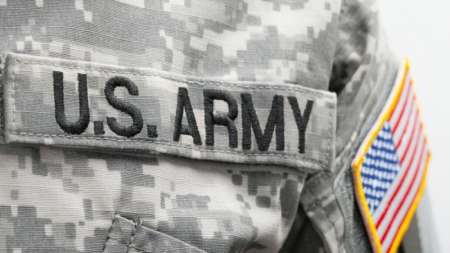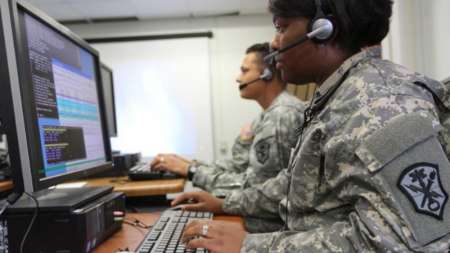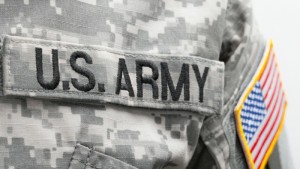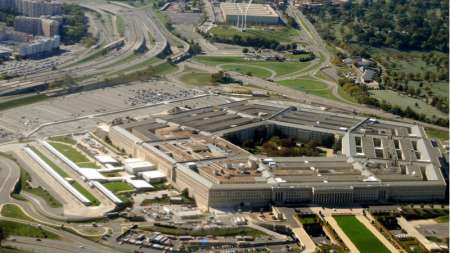The Army Research Laboratory is building a new service to study the relationship between humans and artificial intelligence (AI) and determine the learning methods that benefit both soldiers and tech, according to an April 20 presolicitation. […]
The Army Test and Evaluation Command (ATEC) is seeking a cloud-based tool for managing new talent recruitment and event management, according to an April 15 request for information (RFI). […]
U.S. Army and industry researchers have developed a metric for neural networks that will measure next generation AI and machine learning (ML) algorithms’ reliability. […]
Senior U.S. Army officials told members of the Senate Armed Services Committee today that adoption of cloud architecture and services is high on the service branch’s IT priority list over the next several years. […]
The U.S. Army is seeing success in implementing machine learning (ML)— evidenced by improved classification of previously unknown data by 20 percent— and is developing a workforce culture where artificial intelligence (AI) adoption is possible. […]
While a House Veterans Affairs’ panel investigated the cause of delayed rollout of electronic health records (EHR) at the Department of Veterans Affairs (VA), the chairwoman of the House Appropriations Committee investigated a similar question during a hearing on the Defense Health Program. […]
The U.S. Army’s Artificial Intelligence (AI) Task Force (AITF) is working on new tech to locate and identify potential battlefield threats in real time. […]
The latest “Hack the Army” effort has awarded $275,000 in prizes and identified more than 145 security vulnerabilities. […]
The United States Special Operations Command (USSOCOM) is researching protypes to detect misinformation, disinformation, and mal-information campaigns in real time, according to a request for information (RFI) released by the agency on Dec. 12. […]
The U.S. Army has appointed Paul Puckett the first director of its Enterprise Cloud Management Office (ECMO) within the Army’s office of the CIO, effective Nov. 25. He was Chief Technology Officer for Federal at Pivotal Software, a cloud platform and consulting company. […]
Senate Minority Leader Chuck Schumer, D-N.Y., sent a Nov. 7 letter to U.S. Army Secretary Ryan McCarthy expressing concern about the use of China-owned social media platforms including TikTok by Army personnel in their personal and official capacities. […]
The Department of Defense (DoD) is partnering with Defense Digital Service (DDS) and HackerOne to launch the second Hack the Army bug bounty challenge. The challenge, which will run from Oct. 9 to Nov. 8, encourages hackers to attack more than 60 publicly accessible web assets to improve the DoD’s cyber defenses. […]
The Army Futures Command (AFC) has established cloud as a foundational part of its IT strategy, but is considering the possibility of moving all applications to its cloud-based Unified Data Environment, as noted in a request for information released October 1. […]
The U.S. Army may release its updated modernization strategy as soon as October, and no later than the end of this year, Army Futures Command (AFC) Deputy Commander General Lt. Gen. Eric Wesley said today. […]
The U.S. Army announced Aug. 27 that effective Sept. 9 soldiers willing to reenlist in the Army’s “most in-demand” careers can receive up to $81,000 in lump-sum bonuses. […]
The Army is establishing new cyber and electronic warfare units for multi-domain operations, but the Government Accountability Office (GAO) found that the branch has not fully assessed the risk of activating some of its units at an accelerated pace and is facing staffing, equipping, and training challenges. […]
The Army Futures Command (AFC) is currently developing new wearable identity authentication and authorization technologies, according to an Aug. 7 press release. […]
The U.S. Army is seeking industry partners to assist with securing cyberspace operating areas to free up soldiers to “defend forward.” […]
Army Futures Command (AFC) needs to improve its engagement with small businesses in driving its research and development (R&D), according to a Government Accountability Office (GAO) report published today. […]
The U.S. Army is looking to pilot an Enterprise IT as a Service (EITaaS) approach as an alternative to the service’s current owned and operated IT network, according to a July 9 solicitation. Responses are due by August 9. […]
The Army is looking to commercial-off-the-shelf solutions as the service modernizes its inventory management system, according to a request for information released July 4. Responses are due by July 19. […]
U.S. Army Deputy CIO Garrett Yee is stepping down from that position and moving to a new role in the Defense Information Systems Agency (DISA). […]
The U.S. Army is revamping its strategy for acquiring intellectual property (IP) to meet sustainment goals and use data more efficiently, said Dr. Alexis Lasselle Ross, Deputy Assistant Secretary of the Army for Strategy and Acquisition Reform. […]
Federal agencies should strive to bring talent with cloud migration and development skills in-house rather than hiring contractors to handle migrations, said Major Gen. John Ferrari, director of the Army Program Analysis and Evaluation Office. […]
The Government Accountability Office (GAO) found that the Departments of Health and Human Services (HHS), Energy, Veterans Affairs (VA), U.S. Army, and U.S. Navy inappropriately awarded 1,849 contracts to businesses that had tax debts in 2015 and 2016. […]
The U.S. Army is requesting information on contractors that can provide nationwide web-based public data services for the U.S. Army Criminal Investigation Division Command (USACIDC). […]
The U.S. Army is partnering with the Air Force to use the Common Cloud Environment as part of the Army’s Cloud Strategic Framework, said Thomas Sasala, the Army’s chief data officer, on April 9. […]
Data alone isn’t the new bacon. Data fusion is the new bacon, and data exploitation is the new gold. […]
Defense Department (DoD) officials today underscored the importance of the agency’s ongoing electronic health records (EHR) modernization efforts at a Senate Appropriations Committee Defense Subcommittee hearing on the Defense Health Program FY2020 budget request. […]
Army lieutenant generals told the Senate Armed Services Airland Subcommittee that the Army Futures Command (AFC) has reallocated over $30 billion to the service branch’s modernization efforts since its establishment last summer, in a hearing today. […]
















